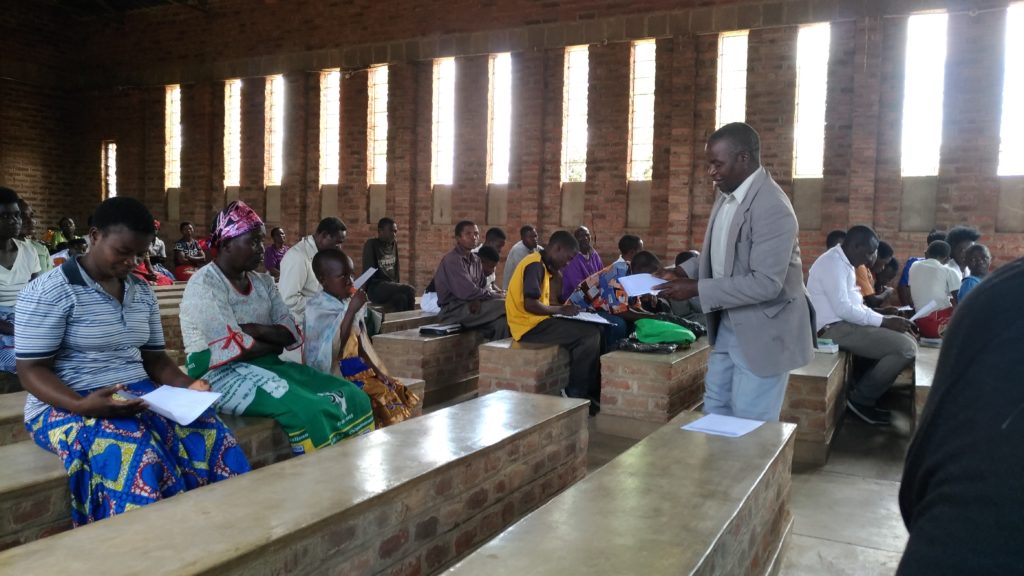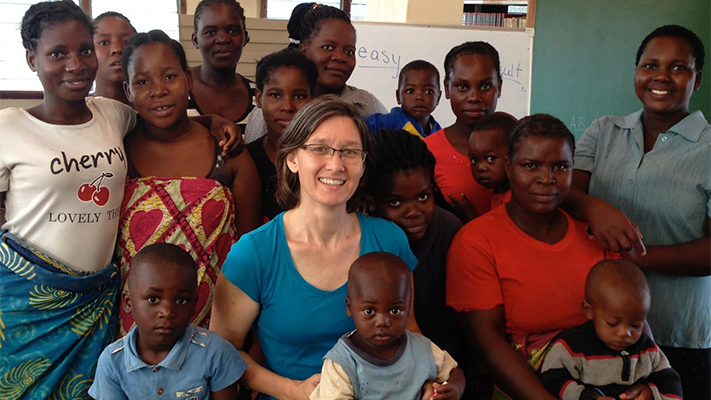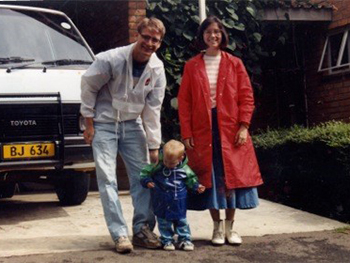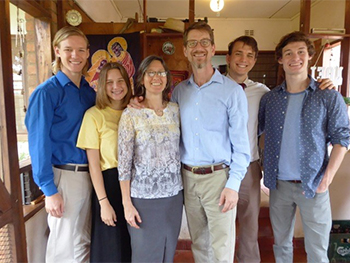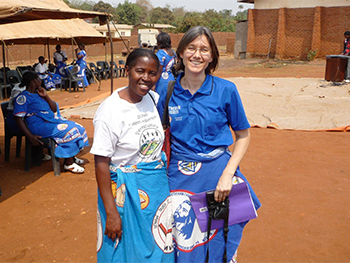Your Weapon Is More Powerful Than Mine

“Your weapon is more powerful than mine.” He wore green camouflage. Emblazoned on his uniform were the letters, UWA: Uganda Wildlife Authority. Comfortably cradled in his arms was an aged and scarred rifle. As he spoke the words, he patted the barrel. “Your weapon is more powerful than mine.” I knew what he meant because he knew who we were.
We were a group of Lutheran Pastors. We carried no weapons crafted from steel or fashioned from wood. No guns or knives or spears were in our hands. The only weapon we bore was a book. No, not just a book but THE book, the Bible. Inspired. Inerrant. Enduring. Living. Active.
Powerful.
After visiting with the UWA Officer for some time, he knew, not only what we represented (The Lutheran Church) but who we represented: the Lord Jesus Christ. He made quite a statement. More like a confession: “Your weapon is more powerful than mine.” Indeed it is. And it was with our “weapon” that we came to Uganda. Again.
Pastor Pembeleka,
Missionary Hartmann and I returned to the “Pearl of Africa.” We made our 2nd mission outreach
trip to Uganda. Like our first one in
December 2018, it was planned for several purposes: visiting congregations, meeting the pastors
and evangelists, building relationships and teaching God’s Word.
The Holy Spirit is
on the move.
From the way it’s
developing, the Lord certainly seems to have opened the door for us into Uganda! A wonderful opportunity
to step through it!
Visiting the
congregations allows us to see how extensive this Lutheran synod is and to
observe what’s “on the ground.”
Attending worship services, listening to sermons and talking with the leaders
gives us opportunity to evaluate messages and doctrines being preached; this in
turn helps inform our teaching approach and course work. We aim to design and teach the classes that
can have the most impact as we move towards declaration of fellowship.
Please pray for us!

We planned an aggressive
course schedule. The topics we covered to
date:
- Justification
- Church and Ministry
- Stewardship
- God’s Great Exchange
- The Bible
- The Work of a Christian Congregation
- The Trinity
- The First Article -God the Father
- The Second Article – God the Son
- The Fall into Sin
- Jesus – His person
- Jesus – His Work
- The Judgement – The Last Day
- The Third Article – God the Holy Spirit
- Conversion
I know, “tip of the
iceberg,” right?
There’s a lot more of the Bible to share. More congregations to visit, more leaders to meet and many more lessons to teach. So much witnessing to do! Even in the unplanned situations. Especially in the unplanned ones! As when we were found ourselves in the office of the Uganda Wildlife Authority.
We had just finished visiting a group of people from the Acholi tribe in Kitgum. We were on the road in our van traveling to our accommodation for the night. From our vehicle we noticed a waterfall. We stopped to take in the view, then hoped that we could walk closer. We soon discovered, however, that we could only do so if we obtained permission from the Uganda Wildlife Authority.
We were directed to an office and that’s where we met up with the uniformed man – and another opportunity to witness and share our faith. We explained who we were, what we were doing and why three of us had come to Uganda. It was during this conversation then that he confessed: “Your weapon is more powerful than mine.” Even so, I’m glad he had his. Because when permission was granted to go to the waterfall, there was one requirement: we needed an officer escort – an armed one!
Why an officer
toting a high-power rifle? Because we’d be
hiking through an area (Karuma Forest Reserve) which was home to big “Tuskers.” Elephants!
So with the rifle slung over his shoulder, UWA Officer Mr. Waako led us through the dense forest on the way to the waterfall.

We came upon signs
of elephant but didn’t actually see any. But as we trekked behind him – and
even to this day – I couldn’t help but think of his words…
Your weapon is more powerful than mine.
His weapon is man-made;
Ours is God-given.
His can scare away elephants;
Ours can send away the devil.
His can bring death;
Ours can give life.
His will rust and deteriorate;
Ours is eternal.
Talk about “high-caliber”
weapon!
And with it we came
to Uganda.
The first time we visited Uganda in December 2018 the leaders of the church excitedly told us that they had chosen the name New Hope for their synod. However, at that point, they were not registered with the government. When they did a little more digging about registration procedure, the government of religious affairs informed them that another organization had already registered under the name New Hope. So that name was no longer available.
A few weeks ago, the synod leaders met again and opted on the name, Obadiah Lutheran Synod—Uganda. They now are fully registered with the government.
But why Obadiah? Pastor Musa explains:
“(We) chose the name Obadiah because we’re a small growing group of worshipers of the LORD and Obadiah means ‘worshipers of the Lord.’ Obadiah is a minor prophet…it’s the shortest book…when you look at our synod it is also minor. We are (still small) and at a growing stage…”
Big or small, long time in existence or short, well established or still organizing, an assembly of be-lievers in the True God is part of the body of Christ! We rejoice with you, Obadiah! And thank God for the opportunity to share the gospel of Jesus and bring His Word among you.
Exactly what Satan
wouldn’t want to happen. Speaking of the
devil, imagine for a moment this scene…
We are in his office talking frankly. He snickers and sneers and tells us about all the tricks up his sleeve that he uses on people to try to get them to abandon their Christian faith. His arsenal is scattered around the room: lies, deception, half-truths, doubt, despair, enticements. He snidely informs us that he picks and chooses his weapons accordingly.
But then we remind
him of the cross, the empty tomb and our living Lord. His eyes drop and he sinks down in his seat. Before
we get up to leave, we ask him for one thing. “We know you’re the Father of Lies, but just for once tell us something
that you know in your heart that is true but that you don’t want to admit
outside this room.”
He scans his office
at his own armament then sullenly speaks…
“Your weapon is more powerful than mine.”
Sincerely,
Your Malawi Mission
Partner, John Holtz

